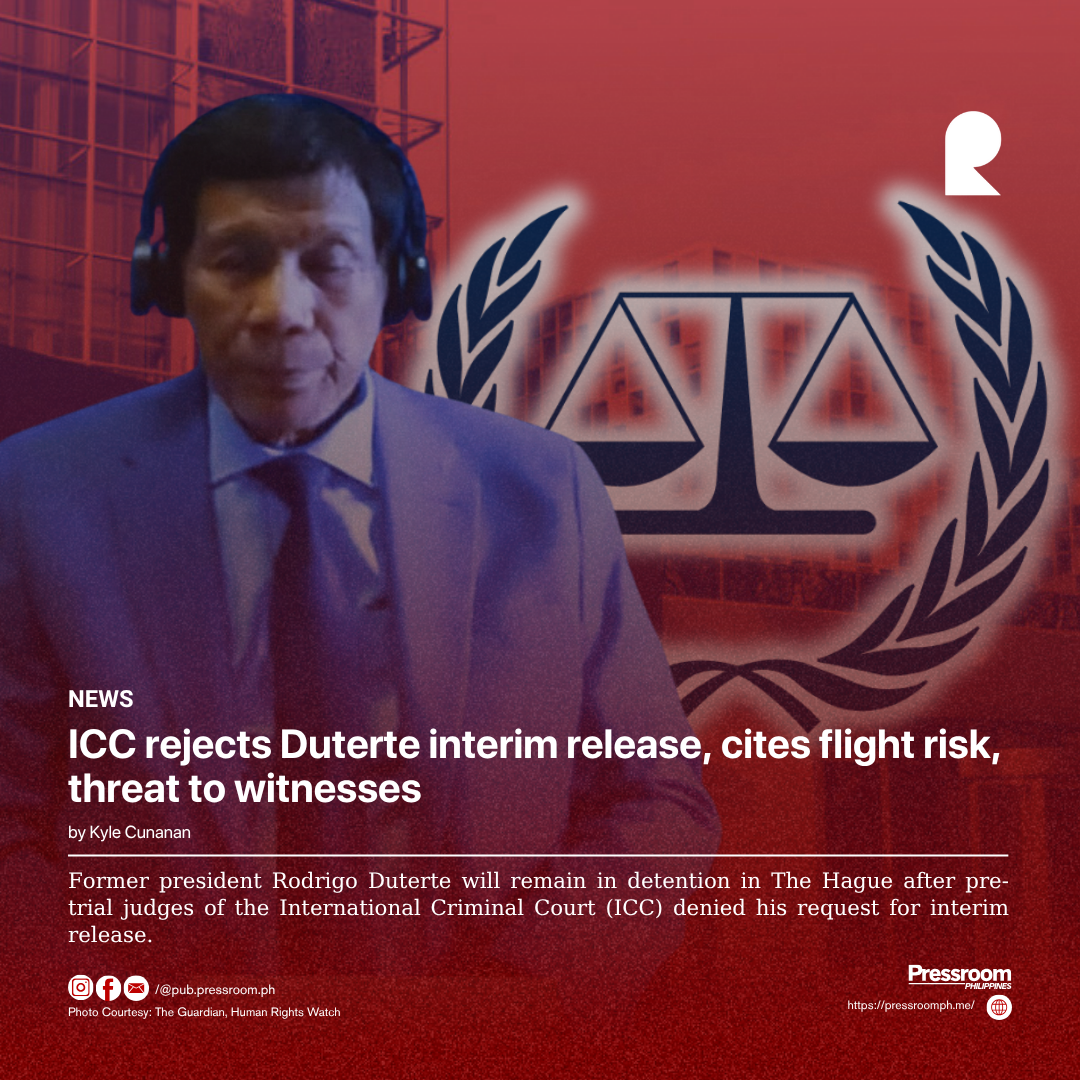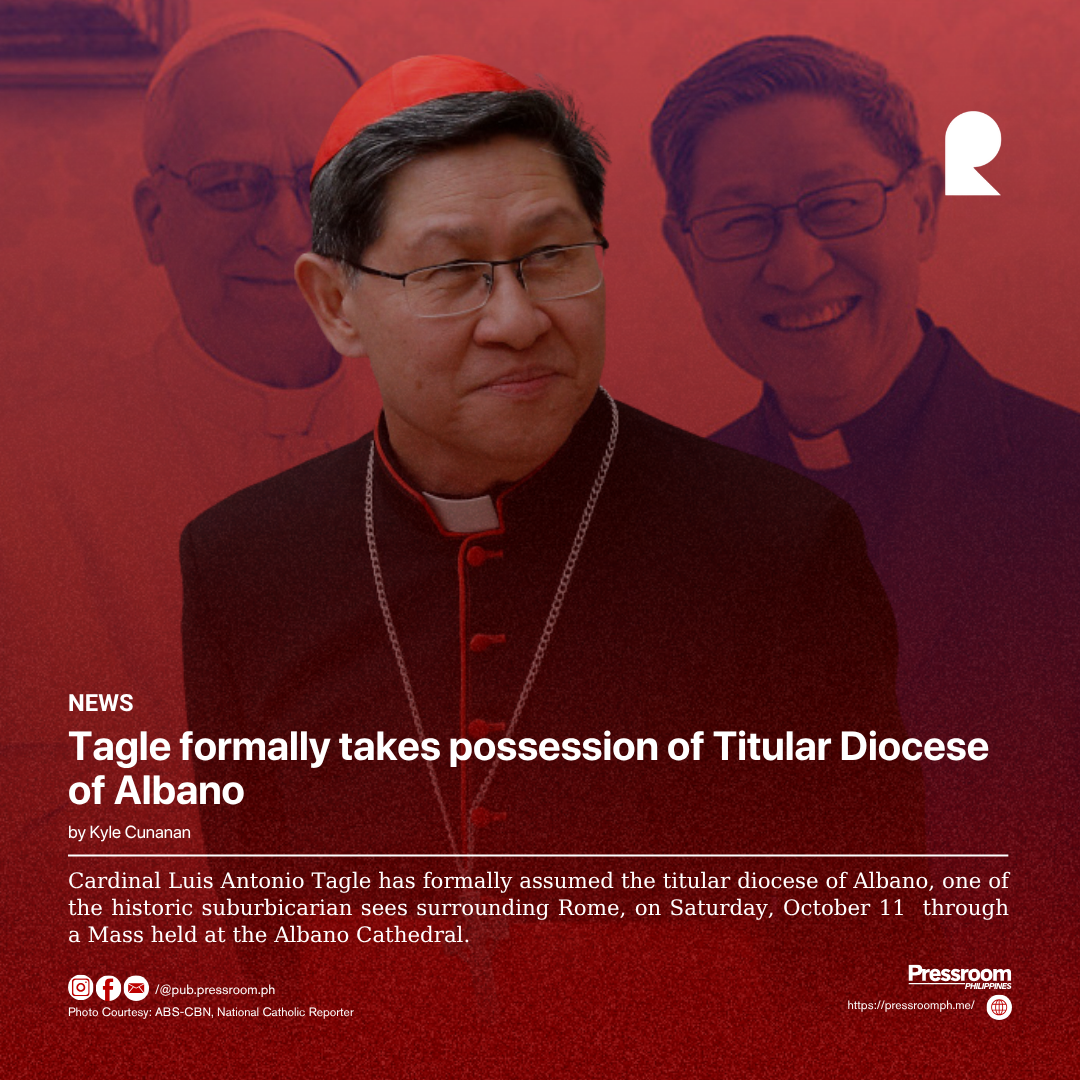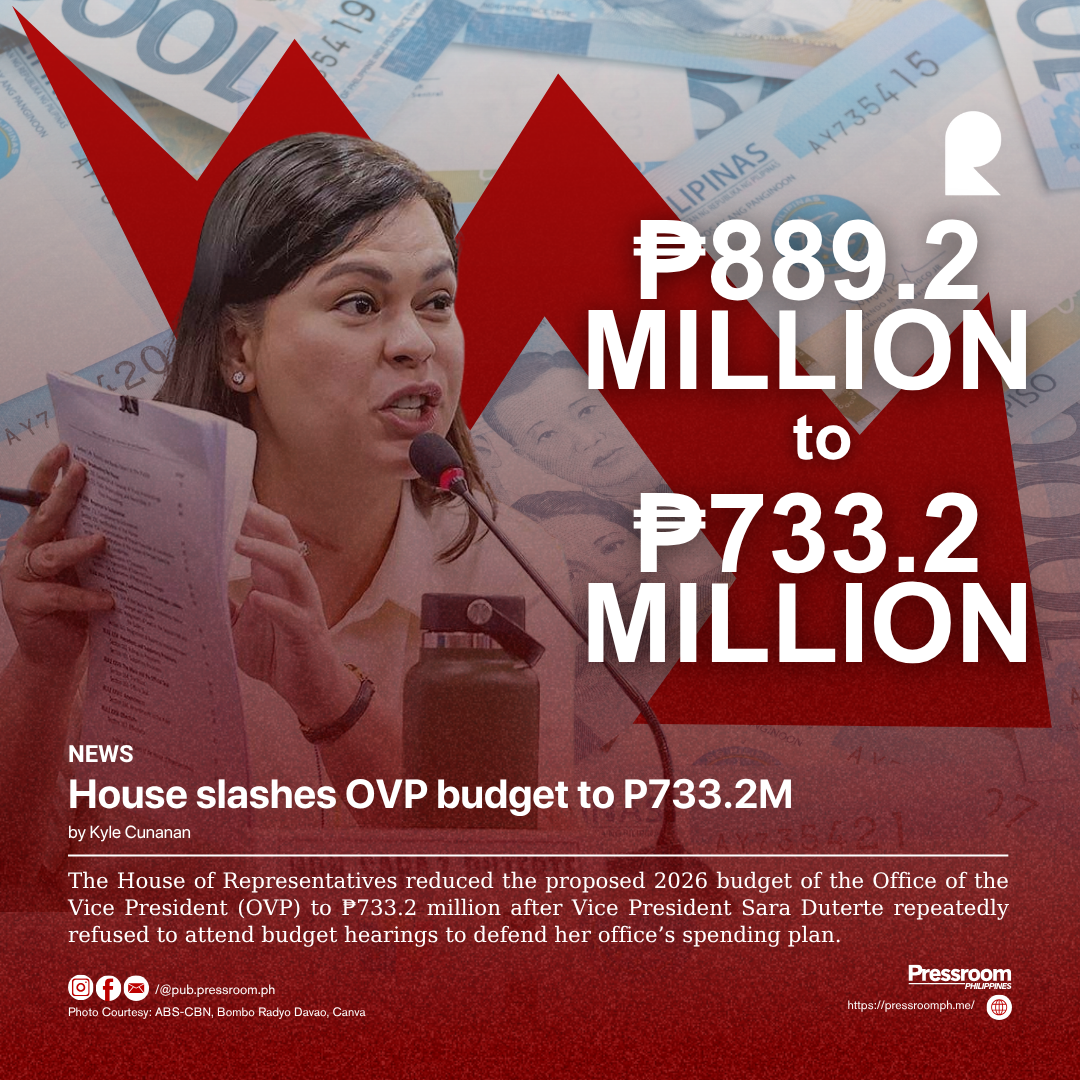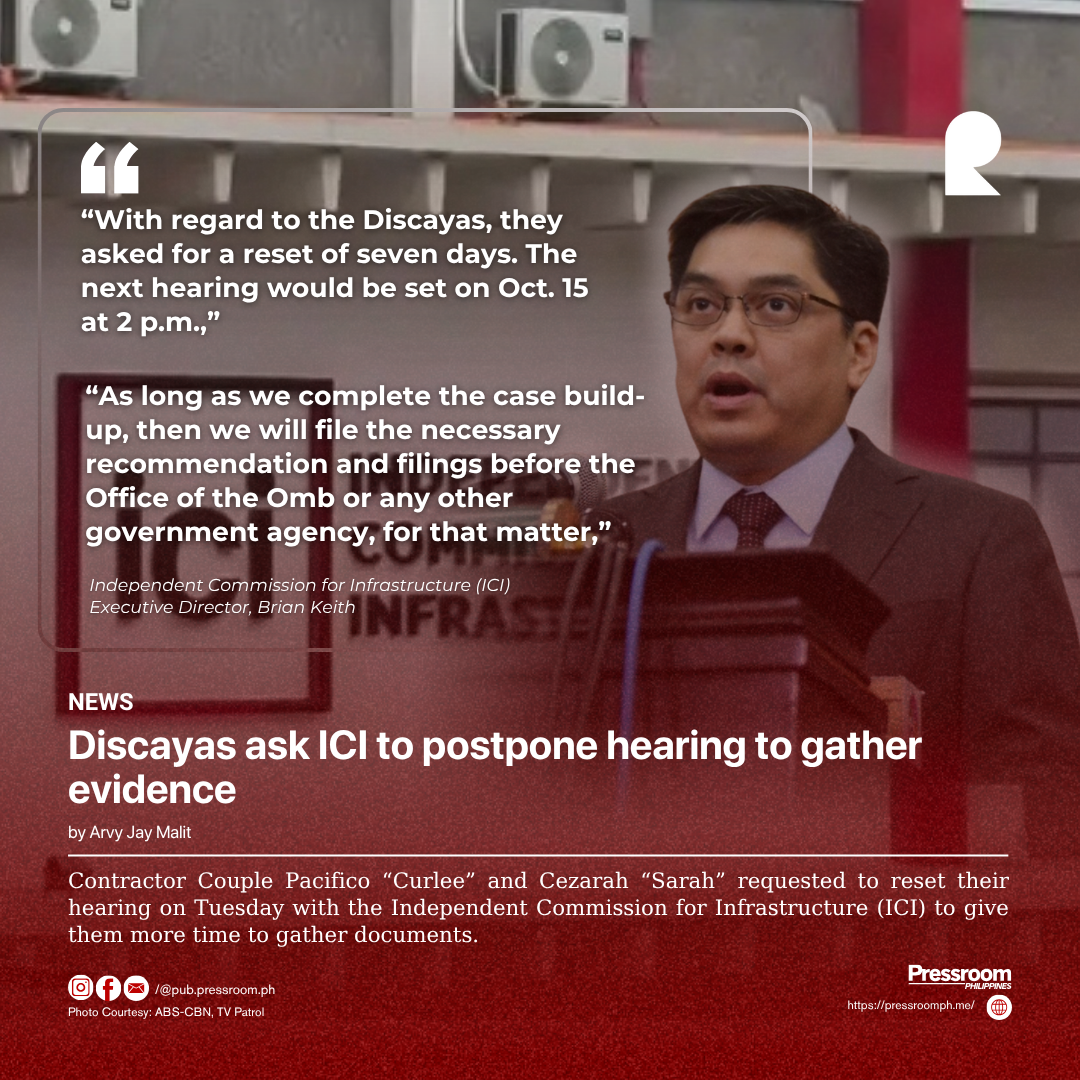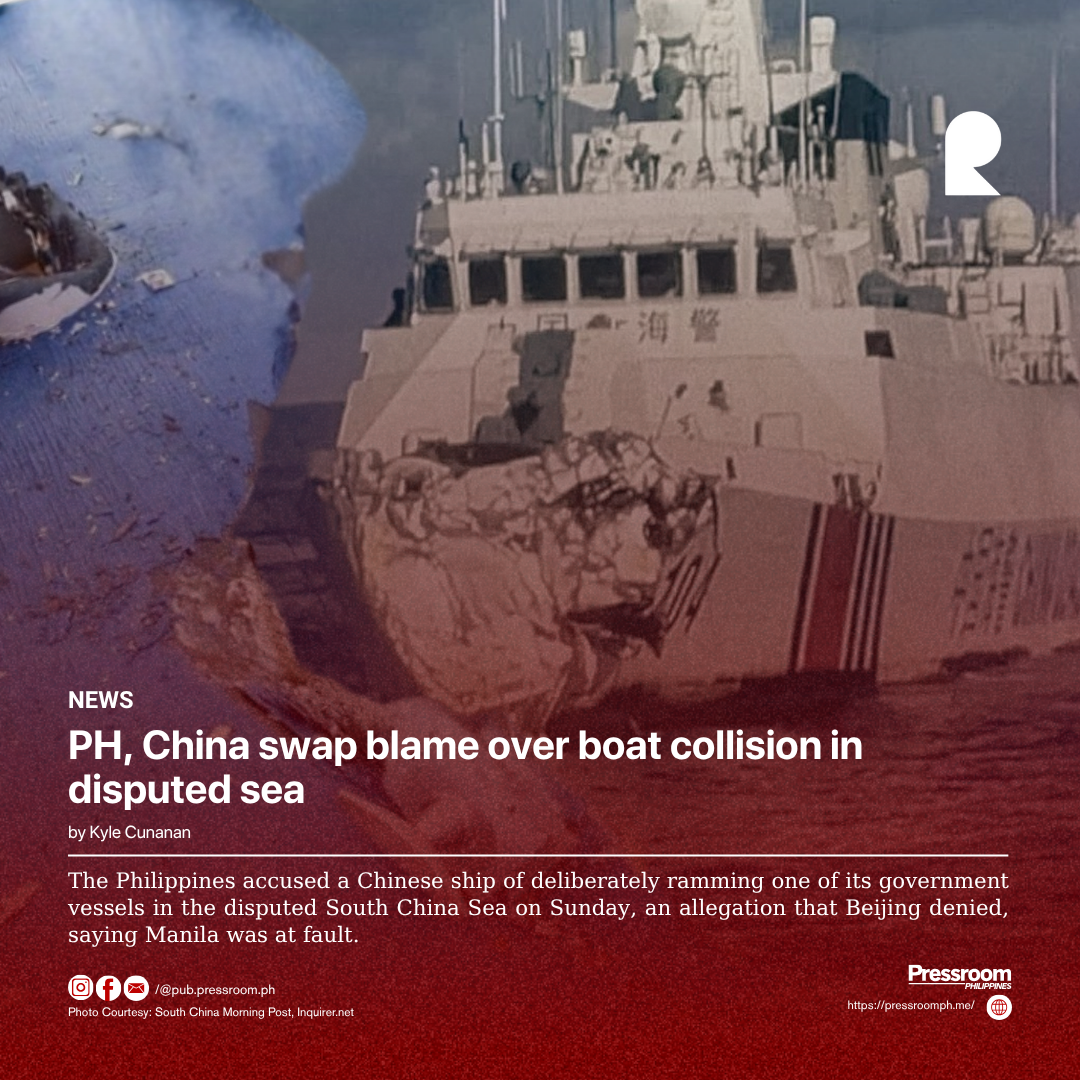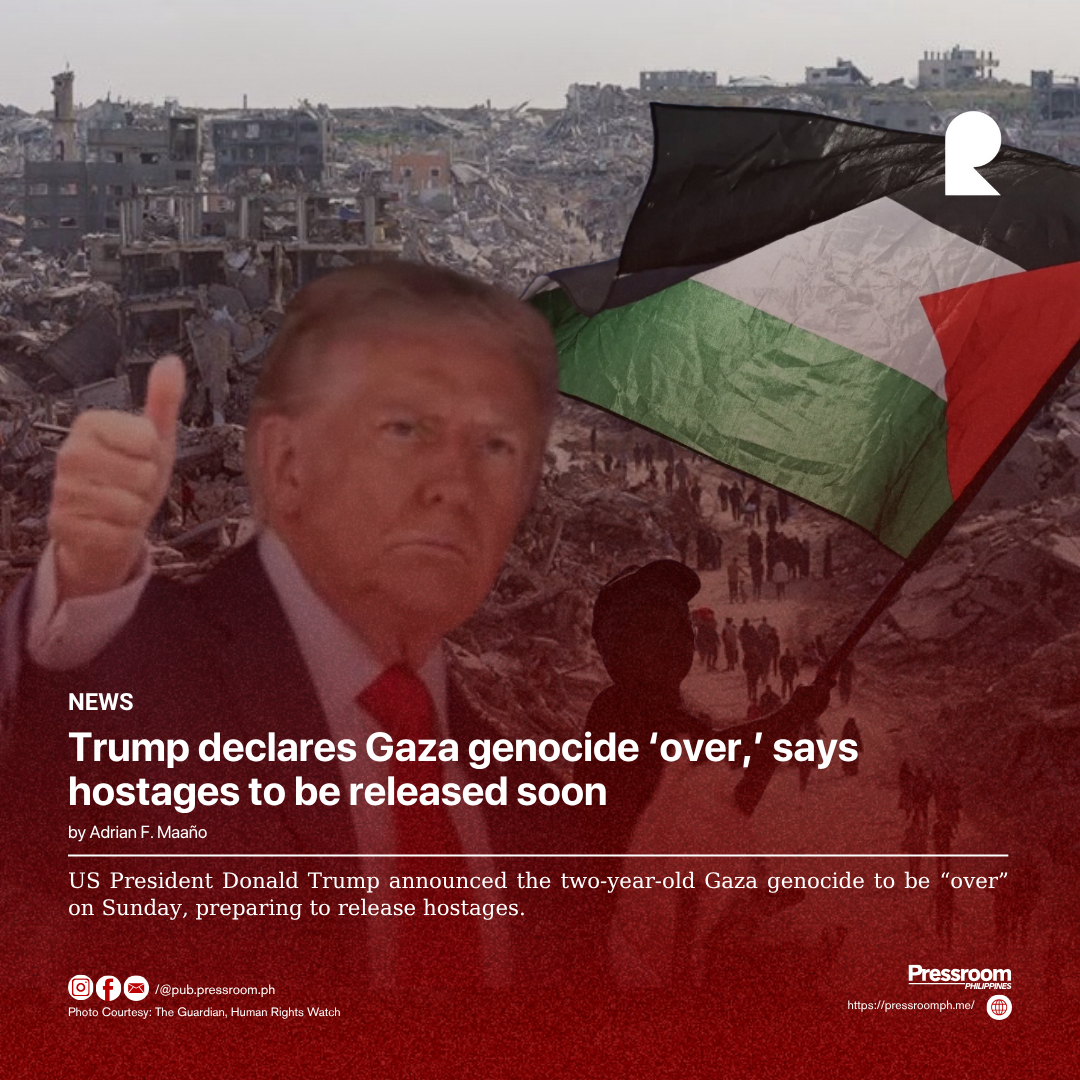Former president Rodrigo Duterte will remain in detention in The Hague after pre-trial judges of the International Criminal Court (ICC) denied his request for interim release.
In a 23-page decision released yesterday, the ICC Pre-Trial Chamber I ruled that Duterte remains a flight risk and could endanger potential witnesses.
The judges also cited the possibility that Duterte could continue committing the crimes charged against him if released from detention.
“The continued detention of Mr. Duterte is justified at this stage of the proceedings in order to ensure that the suspect does not obstruct or endanger the investigation or the Court’s proceedings,” the decision stated.
“The Chamber is of the view that, contrary to the Defense’s assertion, there exists a risk that, should he be released, Mr. Duterte will continue committing the crimes charged against him or related crimes within the Court’s jurisdiction,” it added.
The court said Duterte’s public opposition to his arrest, along with his family’s statements, indicated his likelihood to flee.
It noted Vice President Sara Duterte’s remarks suggesting the possibility of breaking her father out of the ICC Detention Center.
“The Chamber notes that Mr. Duterte’s daughter allegedly indicated on 19 August 2025 that Mr. Duterte had told her that he wishes to return to Davao City, should he be granted interim release, in contradiction with the Defense’s assertion that he would remain in the State he would be released to,” the ruling said.
“The foregoing illustrates Mr. Duterte’s rejection of the proceedings against him before the Court, and the will of his close family to help him elude detention and prosecution,” it added.
The judges said Duterte’s extensive political network in the Philippines could aid him in evading trial.
They also pointed out that Duterte’s electoral win in Davao’s mayoralty race placed him in the same environment where some of the alleged crimes occurred.
Should Duterte return to Davao, the court said he “could be placed in the very position that allowed him to commit the crimes for which his arrest and surrender to the Court was initially sought.”
The decision also referred to the political influence of Duterte’s son, Sebastian, who currently serves as acting mayor of Davao City.
“Moreover, considering Mr. Duterte’s son’s position of power in the Philippines at one of the locations of the crimes alleged… the Chamber finds that this risk continues to exist even if Mr. Duterte would be released to a location that falls outside of the geographic scope of the alleged crimes,” it said.
On his health, the court rejected the defense’s claim that Duterte’s medical condition justified his temporary release.
“The issue of fitness to stand trial is factually and legally distinct from the question of interim release,” the decision noted.
“In this regard, and following a thorough review, the Chamber considers that the abovementioned documents do not indicate how Mr. Duterte’s alleged physical condition or cognitive impairment negate the risks identified above,” it added.
The judges described the defense’s claims on Duterte’s health as “mere extrapolation” and “purely speculative and without basis.”
However, they clarified that their ruling on the medical documents does not affect the separate issue of Duterte’s fitness to participate in trial proceedings.
Meanwhile, the ICC Office of the Prosecutor recommended the appointment of at least three independent experts to assess Duterte’s mental and physical fitness to stand trial.
Deputy Prosecutor Mame Mandiaye Niang proposed experts in forensic psychiatry, neuropsychology, and behavioral neurology.
“The Prosecution notes that these experts were each identified as suitable experts by the Registry independent of any recommendation by the Prosecution or the Defense and have confirmed their interest and availability to the Registry,” Niang said.
He also urged the judges to reject the defense’s proposed expert, warning of potential bias.
“In order to maintain the impartiality of the panel, the Chamber should also instruct the parties and participants to refrain from any contact with the experts, unless authorized by the Chamber,” Niang added.
Duterte’s lawyer, Nicholas Kaufman, earlier sought the suspension of proceedings, citing the former president’s alleged cognitive decline.
Kaufman said medical assessments indicate Duterte is unfit to stand trial.
Rights group Karapatan hailed the ICC ruling as a victory for victims of Duterte’s war on drugs.
Karapatan secretary general Cristina Palabay said the ICC’s decision validated the survivors’ and families’ demand for accountability.
Palabay said Duterte’s family and allies continue to use resources to intimidate witnesses and undermine the ICC process.
She added that Duterte’s legal setback is a result of the tireless efforts of victims, their families, and human rights advocates seeking justice.
